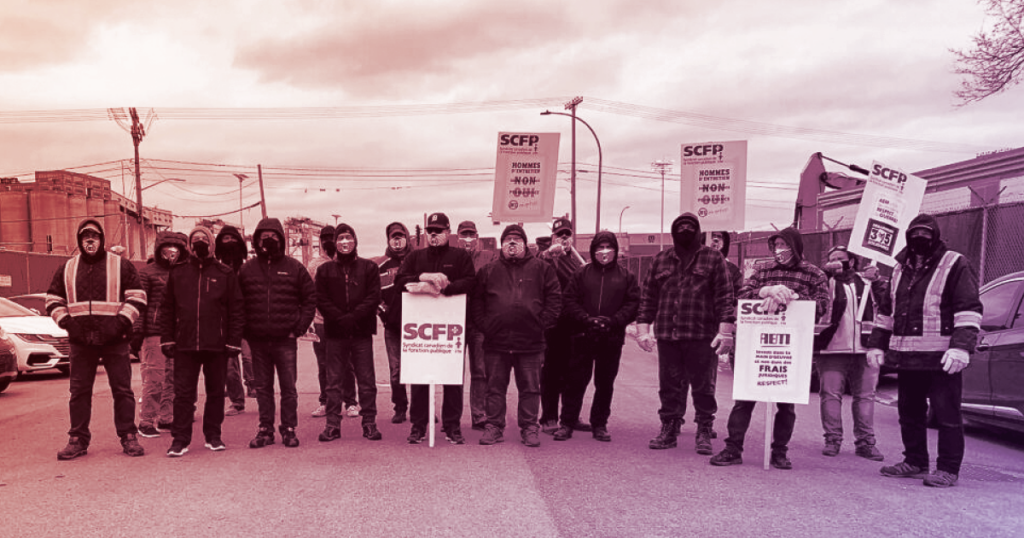We demand justice in long-term care!
On behalf of the Ontario Federation of Labour, Patty Coates joined over 200 doctors, researchers, and advocates to call on the Ontario government to urgently address the long-term care crisis.
View the list of signatories here.
Access the official document and references here.
Read the open letter below:
We are a group of physicians, researchers, and advocates who have come together to express our grave concern for the safety and well-being of Ontarians who reside and work in long-term care (LTC) homes. We call upon the Ontario government to immediately end the violations of peoples’ human rights and control the spread of COVID-19 in LTC. Action is needed today.
To date, the Ontario government’s approach to protect LTC residents has been reactionary at best. The lack of transparency and coordinated provincial oversight has resulted in piecemeal interventions that are too late, or sometimes, even non-existent. Proactive implementation of policies to prevent the spread of COVID-19 are desperately needed.
Lessons not learned in COVID-19’s first wave: In the first wave, the Ontario government managed the pandemic in a way that put LTC residents and staff at increased risk for COVID-19, with devastating results. While many countries had challenges managing the rapid spread of COVID-19, Canada had the highest proportion of LTC deaths as compared to other OECD countries [1]. In Ontario, this resulted in almost 2000 deaths.
Failure to follow expert guidance: From the Canadian military to an independent commission appointed by the government, many reports from the first wave recommend swift and decisive action to prevent outbreaks in LTC homes. The premier of Ontario, Doug Ford, promised to move “heaven and earth” to protect seniors in LTC [2]. Yet, the Ontario government has taken little immediate action in implementing these expert recommendations to improve staffing levels, increase training and improve infection control practices. The government has allowed the situation in our LTC homes to become a preventable and recurring crisis during the 2nd wave, with deaths across the entire province.
In the second wave, we’re still seeing:
-Poor infection control practices. For example, the Ontario government still allows health care workers to work at multiple LTC homes. This goes against infection control practices, many of which we learned from the SARS outbreak nearly 20 years ago.
-Delayed responses to outbreaks in homes. The Ontario government has not consistently or proactively tapped into hospital or community-based response teams despite their expertise in infection control and ability to improve medical care. This failure has resulted in more cases and deaths.
-Lack of transparency. Family members and the public often do not know about staffing levels and infection control standards in a LTC home until it is revealed by a whistleblowing family caregiver or anonymous frontline health worker, who provide facts that differ from the home administration and the provincial government.[3, 4].
-A worsening staffing shortage during the second wave. Reports show the province has 30 percent fewer personal support workers compared to the first wave.[5]. Sixty-five percent of front-line health workers in homes with COVID-19 outbreaks, reported not having enough staff to provide daily hands on care to residents [6].
-Delays in improving staffing levels. Despite the COVID-19 crisis and the fact that residents have a median life-expectancy in Ontario LTC homes of 18 months [7], the government has announced that they plan to improve staffing levels within 4-5 years with little details on funding to support this direction [8,9]. This timeline is unacceptable.
Continued abandonment and inhumane conditions for LTC residents:
As physicians, researchers, and advocates, we know the ongoing staffing shortages compromise resident care. Due to the Ontario government’s inaction in compelling improvements in private, for-profit settings and insufficient action broadly, LTC residents are at high risk of death from COVID-19. In many circumstances, residents are also left without basic care, hygiene, food and water. This is a human rights violation.
Despite all of this, the Ontario government passed legislation to make it harder for families to seek justice for the tragic loss of loved ones by raising the threshold for liability of wrongdoing for LTC operators, many which are private and for-profit [10,11]. We are also concerned to learn from media reports that the Ontario government has delayed the Commission’s efforts by delaying release of documents to the commission and impeding their work [12].
The Ontario government is heading in the wrong direction. LTC residents are paying the price.
Urgent call to action
At a minimum, we demand the Ontario government take the following action immediately:
- End for-profit LTC. For-profit LTC homes have had far worse outcomes during the pandemic as compared to non-profit and municipal LTC homes [13]. Any home operator that does not comply with staffing ratios, infection control protocols, or commits any other major infraction which harms the residents should immediately face a harsh penalty. A strong consideration should be given to remove licenses permanently and incorporate the home into the public system.
- Use all powers and resources available to hire qualified staff who are available now while building capacity through an urgent training and recruitment effort. Legislate a care standard immediately to ensure all LTC residents receive a minimum of four hours of direct hands-on care per day.
- Set a minimum pay standard for front-line LTC staff consistent with the hospital sector. It is the decent thing to do to support frontline workers.
- Ensure at least 70% of staff at each LTC home are full time. All staff should be permanent and receive paid sick leave and benefits. In the case of shortages, part-time staff should receive the first opportunity to receive full-time work. Eliminate the use of agency workers.
- Ensure family caregivers are allowed unrestricted entry into LTC homes with proper PPE to look after their loved ones and make sure appropriate care is being delivered. Legislate and enforce essential family caregivers’ rights to enter LTC homes, whether they are in COVID-19 outbreak or not.
- Ensure formal partnerships are established between hospitals, primary care teams and all LTC homes. This way, the right expertise can be available at the right time. This will improve infection prevention & control and will cut response times down in the event of an outbreak.
- Keep hospital or community based medical teams on standby, and give them the authority to go into LTC homes, with or without permission from the home’s ownership, at the start of an outbreak to help with: a. infection control practices b. meeting the basic care needs of residents, including feeding and bathing c. medical assessment and treatment of residents affected by COVID-19 or
otherwise - Where required, call upon the Military to immediately assist LTC homes struggling with large outbreaks where staffing has collapsed.
- Speed up the vaccination rollout to vaccinate LTC residents, front-line staff, and essential family caregivers as soon as possible.
Urgent action is needed now. This is a matter of life and death.


